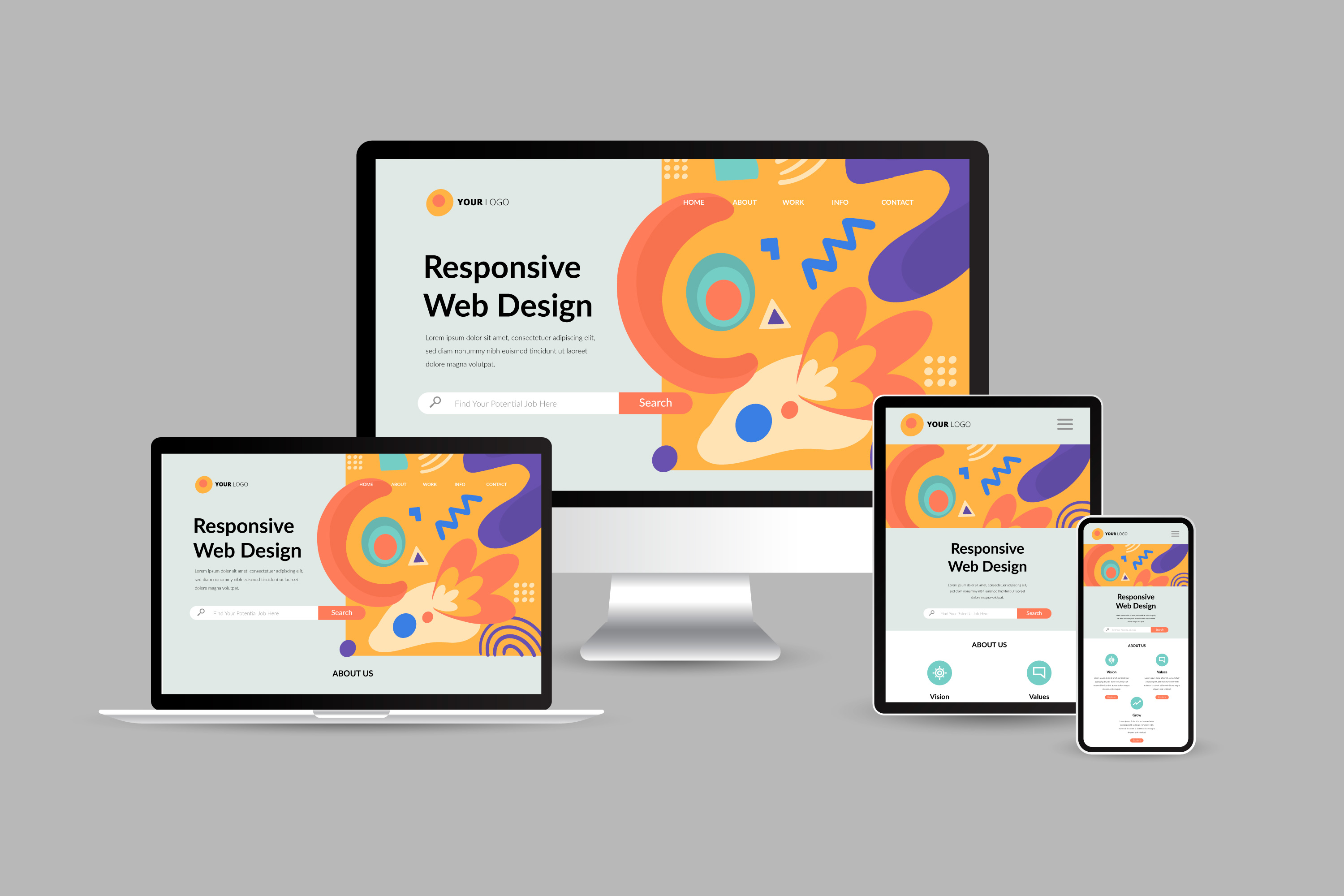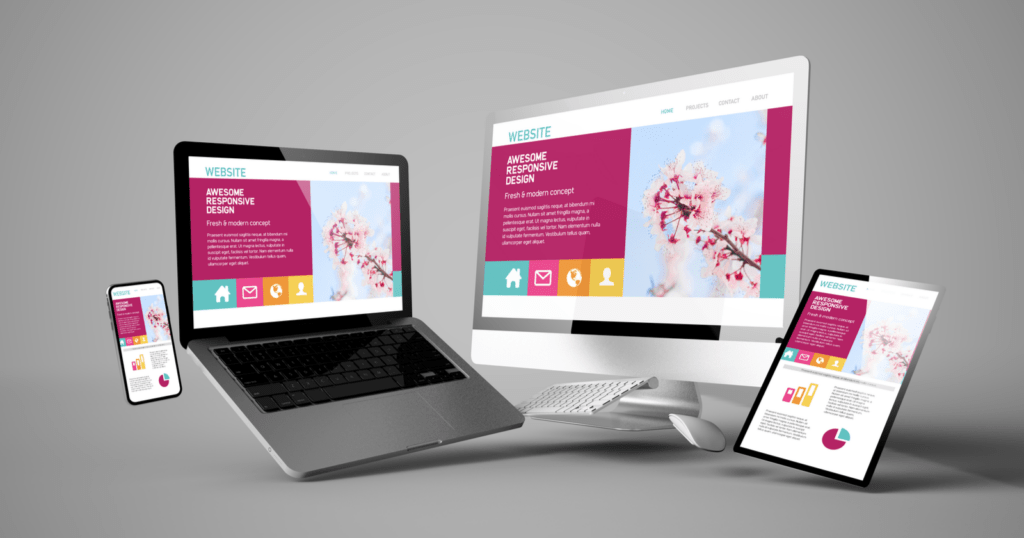Expert Web Design Singapore Services for Modern and Adaptive Sites
Expert Web Design Singapore Services for Modern and Adaptive Sites
Blog Article
Top Trends in Website Design: What You Need to Know
Minimalism, dark setting, and mobile-first strategies are amongst the key themes shaping modern-day design, each offering special advantages in customer interaction and performance. Furthermore, the focus on ease of access and inclusivity emphasizes the importance of producing electronic environments that provide to all individuals.
Minimalist Design Visual Appeals
In recent times, minimalist layout visual appeals have actually emerged as a leading fad in website layout, stressing simpleness and capability. This technique prioritizes necessary material and eliminates unnecessary components, consequently boosting customer experience. By concentrating on clean lines, adequate white room, and a restricted shade palette, minimal styles promote simpler navigation and quicker tons times, which are important in maintaining customers' focus.
Typography plays a substantial function in minimalist design, as the option of typeface can stimulate certain feelings and guide the user's trip with the web content. The calculated use of visuals, such as high-grade images or subtle computer animations, can improve individual engagement without overwhelming the overall visual.
As electronic areas remain to develop, the minimal style concept stays relevant, accommodating a diverse audience. Services adopting this pattern are commonly viewed as contemporary and user-centric, which can significantly affect brand perception in a progressively open market. Inevitably, minimal style visual appeals provide an effective solution for efficient and attractive website experiences.
Dark Mode Appeal
Accepting a growing pattern among customers, dark mode has actually gained substantial appeal in website layout and application interfaces. This design strategy includes a primarily dark color combination, which not only improves visual appeal however likewise decreases eye strain, particularly in low-light settings. Customers increasingly appreciate the convenience that dark setting supplies, causing much longer engagement times and an even more delightful surfing experience.
The fostering of dark setting is likewise driven by its regarded benefits for battery life on OLED displays, where dark pixels consume much less power. This functional advantage, combined with the stylish, modern-day appearance that dark styles supply, has led many developers to integrate dark setting choices right into their projects.
Furthermore, dark setting can produce a feeling of deepness and focus, attracting focus to crucial elements of a site or application. web design company singapore. As a result, brand names leveraging dark mode can boost user communication and produce an unique identification in a jampacked market. With the trend continuing to increase, including dark setting into website design is becoming not just a preference yet a standard assumption among users, making it vital for designers and developers alike to consider this aspect in their projects
Interactive and Immersive Components
Frequently, designers are including interactive and immersive aspects right into web sites to improve user interaction and produce remarkable experiences. This trend responds to the enhancing assumption from users for more vibrant and personalized communications. By leveraging attributes such as animations, videos, and 3D graphics, web sites can draw individuals in, promoting a deeper connection with the web content.
Interactive aspects, such as quizzes, polls, and gamified experiences, urge visitors to proactively take part instead of passively take in info. This involvement not only maintains users on the site longer but likewise raises the likelihood of conversions. Furthermore, immersive technologies like virtual fact (VIRTUAL REALITY) and enhanced fact (AR) offer special opportunities for organizations to showcase product or services in an extra engaging fashion.
The incorporation of micro-interactions-- little, subtle animations that react to customer actions-- additionally plays an important function in boosting usability. These communications offer comments, boost navigation, and create a feeling of complete satisfaction upon completion of tasks. As the electronic landscape proceeds to evolve, using interactive and immersive elements will stay a considerable focus for developers aiming to create appealing and reliable online experiences.
Mobile-First Method
As the frequency of mobile phones remains to rise, embracing a mobile-first strategy has ended up being important for web developers aiming to optimize customer experience. This strategy stresses creating for smart phones before scaling up to larger displays, guaranteeing that the core functionality and material come on the most commonly made use of platform.
One YOURURL.com of the primary advantages of a mobile-first strategy is boosted performance. By concentrating on mobile layout, sites are streamlined, lowering tons times and improving navigation. This is especially important as customers anticipate rapid and receptive experiences on their smartphones and tablets.

Ease Of Access and Inclusivity
In today's digital landscape, making certain that sites are available and inclusive is not just a finest technique but a basic need for getting to a varied target market. As the web continues to function as a main ways of interaction and business, it is important to recognize the varied needs of individuals, including those with disabilities.
To attain real access, internet developers must abide by established standards, such as the Web Content Availability Guidelines (WCAG) These guidelines highlight the importance of providing text alternatives for non-text web content, making certain key-board navigability, and maintaining a logical content framework. In addition, inclusive design methods expand past compliance; they include producing a customer experience that suits different abilities and preferences.
Integrating features such as adjustable text sizes, shade comparison options, and screen viewers compatibility not only boosts use for individuals with disabilities but additionally enhances the experience for all customers. Ultimately, prioritizing ease of access and inclusivity fosters a more fair digital environment, encouraging wider involvement and engagement. As businesses progressively recognize the moral and financial imperatives of inclusivity, incorporating these principles right into website layout will become an important aspect of effective online techniques.
Conclusion

Report this page